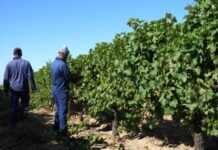The Government of Kenya, through the Kenya Sugar Board (KSB), is in the final stages of leasing several state-owned sugar factories as part of a broader plan to boost efficiency, reduce debt burdens, and revive the struggling sugar sector.
Speaking during the Africa Sugar Conference 2025 held in Nairobi earlier this week, Richard Magero, Deputy Director of the Sugar Directorate at KSB, said the initiative is one of several strategic reforms aimed at revitalising the industry, which has been grappling with persistent underperformance.
“For years, the sugar sector has faced significant challenges, including outdated machinery, poor management, and recurring financial crises that have forced the government to repeatedly bail out farmers,” Magero noted.
He added that various assessments have revealed a stark contrast between private and public sugar mills, with privately-run factories consistently outperforming their public counterparts in cane production, processing efficiency, and revenue generation. These findings informed the decision to seek private investors to lease and manage public sugar mills.
The leasing process officially began late last year after the resolution of several court cases. It has since progressed to an advanced phase, with potential investors currently being vetted based on their proposals.
“We are confident that we will soon identify credible and experienced investors who can transform these public mills and deliver tangible benefits to farmers and the national economy,” Magero said.
The factories earmarked for leasing include Nzoia Sugar Company Limited, Chemelil Sugar Company Limited, Muhoroni Sugar Company Limited, and South Nyanza Sugar Company Limited.

Sugar Development Levy Introduced
To further support the industry, KSB has introduced a 4% sugar development levy on both locally produced and imported sugar. Magero explained that the levy is designed to strengthen infrastructure and support farmers and millers.
Under the levy’s framework, 40% is allocated to cane infrastructure projects such as road construction, 15% goes towards factory improvements, and another 15% supports research initiatives through the Sugar Research and Training Institute. An additional 10% is used for KSB’s administrative functions, while the remainder is set aside for loans to millers to enhance production and services.
“We’ve also set up a sugarcane pricing committee responsible for ensuring fair pricing for farmers and eliminating middlemen who often exploit producers,” Magero added.
Increased Production and Research-Driven Improvements
Despite past setbacks, the sector showed signs of recovery last year. According to KSB, Kenya recorded sugar production of 814,000 metric tonnes, an improvement linked to ongoing reforms.
Still, the country remains short of its domestic demand, which stands at 1.1 million metric tonnes. To bridge this gap, 170,000 metric tonnes of refined sugar were imported last year, mainly for use in soft drink manufacturing and the pharmaceutical sector.
To boost local production, KSB’s research institute has developed and released 27 improved sugarcane varieties aimed at increasing yields. These efforts are complemented by a government-subsidised fertiliser programme now extended to sugarcane farmers.
“With these new cane varieties and affordable inputs, we’re optimistic about raising production levels and securing better incomes for our farmers,” said Magero.








